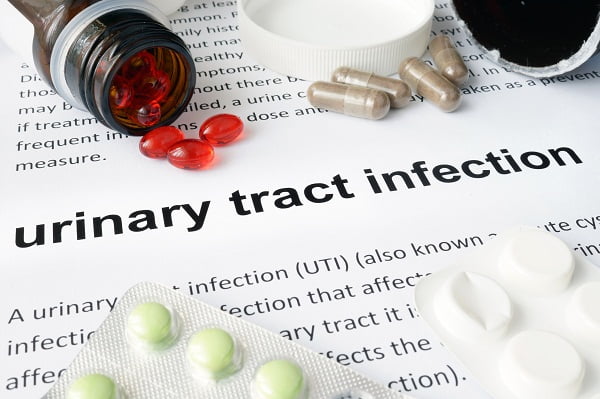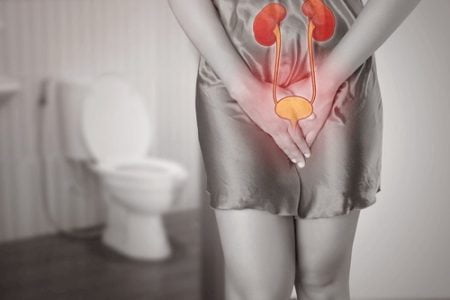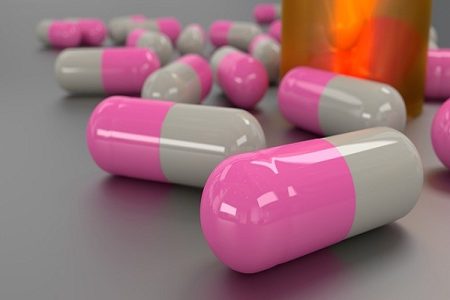Treatment of Urinary Tract Infection
- Updated on: Jun 12, 2024
- 3 min Read
- Published on Feb 21, 2021


Urinary Tract Infection (UTI) can be easily treated. Your doctor will likely start with antibiotics as these are usually the first line treatment for urinary tract infections. The drugs and the duration for which the drug is taken depend on your condition and the type of bacteria that is responsible for the infection.
The following drugs are generally recommended if the infection is simple.
Drugs for Urinary Tract Infection
- Cephalexin (Keflex)
- Trimethoprim with sulfamethoxazole (Bactrim, Septra)
- Ciprofloxacin (Cipro)
- Fosfomycin (Monurol)
- Nitrofurantoin (Furadantin, Macrodantin, Macrobid)
- Levofloxacin (Levaquin)
- Ceftriaxone (Rocephin)
- Doxycycline (Monodox, Vibramycin)
- Azithromycin (Zithromax, Zmax)
Note: Names in the brackets represent their brand names
How Do These Medicines Work?
These medicines kill the bacteria or microbes that commonly cause urinary tract infections. Antibiotics treat the UTI. They prevent complications due to the infection that can grow to an advanced stage. These complications may include such as kidney damage. Antibiotics also help in prevention of the UTIs. Your doctor may sometimes recommend antibiotics as a preventive therapy in cases such as:
- Women who have frequent UTIs
- People who have other problems such as spinal injuries or other nervous disorders that may cause urinary infections
- Pregnant women who had UTI before getting pregnant
- People who undergo kidney transplant
- People who undergo through surgery involving urinary tract
Generally, symptoms go away within a few days of the use of antibiotics. However, your doctor you ask you to continue the treatment and take the antibiotics for a week or more so as to complete the full course. You should be careful not to stop the treatment before the course is complete. For a simple and uncomplicated UTI, your doctor may prescribe antibiotics for a shorter duration such as for one to three days.
In some cases, your doctor may also suggest a pain medication (analgesic) to relieve burning while urinating. Pain however usually subsides after you start using an antibiotic.
Treatment if You Have Frequent Urinary Tract Infections
If you have frequent UTIs, your doctor may suggest the following treatment recommendations:
- Low dose antibiotics – initially for six months but it can be for a longer period as well
- A single dose of antibiotic after you have a sexual intercourse in case sex is the main cause of your infections
- Vaginal estrogen therapy if you are in a postmenopausal state
Severe Urinary Tract Infection
If you have severe infection, your doctor may provide intravenous antibiotics for days. Some patients may receive an infusion of the drug and then allowed to go home. Others may need to be observed for a longer duration (such as for 12 or 24 hours) to see how they do in response to the infusion of antibiotics.
FAQs
Is it necessary to take a full course of antibiotics for a UTI?
Completing the full antibiotic course prescribed by your doctor is crucial. Stopping early may not fully eliminate the infection, leading to recurrence and potential antibiotic resistance.
Can I use over-the-counter remedies to treat a UTI?
While over-the-counter products may alleviate symptoms, they don't address the root cause. Professional medical evaluation and prescription antibiotics are essential for effective UTI treatment.
How long does it take for antibiotics to work against a UTI?
Antibiotics typically start relieving symptoms within a day or two. However, it's essential to complete the entire course as prescribed to ensure complete eradication of the infection.
Are there alternative treatments for UTIs besides antibiotics?
Antibiotics are the primary and most effective treatment for UTIs. Alternative therapies may help alleviate symptoms but should not replace medical intervention.
Can a UTI resolve on its own without treatment?
While some mild UTIs may resolve without treatment, it's risky to rely on self-resolution. Untreated UTIs can lead to complications, and seeking medical attention is recommended.












